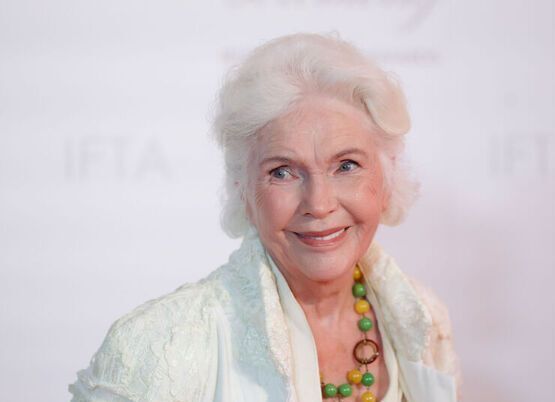[Top: “Above all! Let’s not talk about the Dreyfus Affair!” Bottom: “They talked about it…” Lorraine Beitler Collection of the Dreyfus Affair. University of Philadelphia Libraries.]
“Let’s be careful out there.”
That’s the famous line from Sgt. Esterhaus as the 7 a.m. shift began in the 1980s show “Hill Street Blues.”
This week, similar advice is being imparted. “Don’t get drawn into arguments at the big family dinner,” or “refrain from offending your nearest and not so dearest.”
Our society is said to be divided, but this is nothing new. One might cite the example of the culture war to beat all culture wars, the Dreyfus Affair, which was on the front-burner in France for much of the 1890s.
Alfred Dreyfus was the Jewish artillery captain accused and convicted of spying for Germany in 1894. His punishment was imprisonment in solitary confinement for life on Devil’s Island, off French Guiana in South America.
The innocent Dreyfus, languishing in his cell thousands of miles from home, was not permitted so much as a glimpse of the ocean, but certain in the knowledge that his beloved wife Lucie and brother Mathieu were working to overturn his conviction. He was wholly unaware, however, of the extent of the controversy the case had ignited and that “Dreyfusards” and “anti-Dreyfusards” were battling it out in the press and throughout society in France. The leading Paris daily Le Figaro ran a two-part cartoon on Feb. 13, 1898, entitled “A Family Dinner.” The first part showed the person at the head of the table warning good-naturedly, “Above all! Let’s not talk about the Dreyfus Affair!”
The second part shows the dinner party’s descent into violent chaos, with the caption: “They talked about it…”
Christmas Day 1891 was the setting for the dinner hosted by the Dedalus family in James Joyce’s “A Portrait of the Artist as a Young Man.” The real-world backdrop was the Oct. 6 death of Charles Stewart Parnell in the arms of his wife, the former Katharine O’Shea, at home in Hove, England. He’d come down with pneumonia after electoral campaigning in Ireland; it was a last futile battle for the “dethroned” leader of Irish nationalism after the previously adulterous nature of his relationship with Katharine had been revealed.
Simon Dedalus, the man of the house and father to the protagonist Stephen, then a child, belongs to the Parnellite minority, as does his friend John Casey, while Mrs. Dante Riordan, a character drawn from the Joyces’ governess in this era, is vehemently anti-Parnellite ("Dante" was believed to be a child's mispronunciation of "Auntie). Uncle Charles prefers to keep the peace, as does the woman of the house, Mrs Dedalus, though she soon feels things getting heated around the dinner table, saying “for pity sake let us have no political discussion on this day of all days in the year.”
One might say it’s better to allow discussion and not let it get out of control.
The supporters of the former president could surely be permitted to crow that their man on Nov. 5 finally got more votes than the Democratic candidate. His opponents might counter that he still fell short of a majority and was a mere 1.5 percent of the popular vote ahead of the vice-president after her relatively brief campaign.
The latter group’s attitude might be: “My side doesn’t aim to overthrow the government. At least we should be allowed to say what we think on Thanksgiving!”
If given an opportunity to say what they’re thankful for on Thursday, they could reply “vaccines,” and refer to the eradication of smallpox and the hundreds of millions of lives saved.
They might also silently nurture the hope, as was the case ultimately for the Dreyfusards, that the forces of light will prevail.
Before that, back on Jan. 5, 1895, not long after it all started, “Dreyfus was publicly disgraced at a ceremony of degradation staged in the courtyard of the Ecole militaire. In front of a crowd screaming ‘Death to Judas, and ‘death to the Jew.’”
So writes Ruth Harris in her excellent 2010 account of the affair, “Dreyfus: Politics, Emotion, and the Scandal of the Century.”
Dreyfus’s epaulettes were torn from his shoulders, the red stripes on his trousers were ripped off, and his saber was broken in two. (All of this was made easier by those parts of his uniform being loosened ahead of time, while the saber had been cut and soldered with tin.)
The leading novelist and nationalist ideologue Maurice Barrès, who’d witnessed it, said the ceremony was “a more exciting spectacle than the guillotine.”
As Harris writes, “While the guillotine severed the head instantly, the degradation provided a sumptuous symbolic feast.”
Another novelist, Emile Zola, got involved on the other side in early 1898, with his famous “J’Accuse” essay, and was quickly brought to trial for defamation. This was the immediate backdrop to the cartoon’s publication in Le Figaro.
It’s the humiliation of their hero Parnell, “hounded” into his grave at age 45, that grates with Mr. Dedalus and Mr. Casey, and they blame the intervention of the Catholic hierarchy, which had turned on the political leader.
— We go to the house of God, Mr Casey said, in all humility to pray to our Maker and not to hear election addresses.
— It is religion, Dante said again. They are right. They must direct their flocks.
— And preach politics from the altar, is it? asked Mr Dedalus.
— Certainly, said Dante. It is a question of public morality. A priest would not be a priest if he did not tell his flock what is right and what is wrong.
A turning point comes as Casey recalls “one day down in Arklow, a cold bitter day, not long before the chief died. May God have mercy on him!”
“Before he was killed, you mean,” Simon Dedalus said.
Casey’s remembrance of what happened in Arklow pushes the row over the edge and Dante departs, slamming the door behind her.
The factions were to reunite by the turn of the century, but an even more bitter national split was on the horizon.
My mother was into her 60s when she learned that her paternal grandfather collapsed and died following a full and frank exchange of views on the Treaty. This was 20 years after it had been signed. His oldest children, who’d been involved in the Civil War, were not present. His devoted wife, who took a different view to his, was. Their youngest child, too young to remember that war clearly, was also present and likely pressing his father’s buttons, as they say these days.
In a later era, my father would sit back and even seem to encourage two of my siblings as they engaged with one of his at holiday time. He could play both referee and instigator, I suppose, because he loved all involved; and he certainly enjoyed talking about those annual disputes after the fact. Importantly, Dad wouldn’t let things get too out of hand. Still, it was Parnellite vs. anti-Parnellite all over again, Dreyfusard vs. anti-Dreyfusard.
Just as there are designated drivers organized before a gathering, then perhaps there could be people assigned to intervene if and when things get heated. As they attempt to calm things, such a person might first silently remember the dead and the passionate arguments of times past. They must then invoke the essential goodness of people before they use the words “reactionary” and “fascist,” from one side, and “Marxist,” from the other.
Speaking of which, I saw something striking last week in that regard, and I may have been the only uninvolved witness. It happened on a corner in West Midtown I won’t name. A short, elderly man bent down to hand a child of about 5 – sitting with her mother and younger siblings in the street – what I believe was a $100 bill. It was folded, but he spoke a phrase, a religious or more general saying, that had “100” in it. The child, from a migrant family, didn’t understand the man, who from his hat and clothes I guessed to be a religiously observant Muslim.
It's always, one can hope, the season of goodwill, although I realize that in simply relaying that incident I could set off an almighty row across a dinner table.








